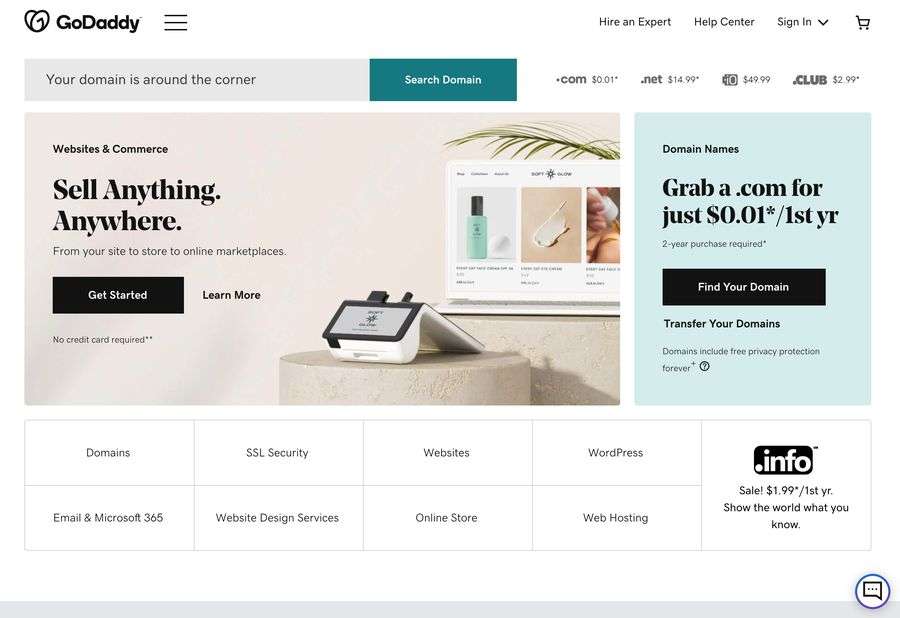
Starting an online business is a great way to achieve financial freedom and independence. If you’re like most people, you’ve probably been told that to be successful online, you need to find a niche market. The most critical step in how to start online business is picking the right niche ideas. But what if you don’t know what your niche for your online business should be? Or worse, what if you have too many interests and can’t decide on just one business idea? Here are a few tips to help you choose the right niche for your business.
1. What is a niche market, and why do you need one for your online business?
A niche market is a specific segment of your target population with your products or services. It may be a subset of the general population, such as pet owners, or a more specific group, such as people interested in organic gardening.
Some wise old man once said, if you try to sell to everyone, you sell to no one. That’s why focusing your business idea on a specific niche is important. When you focus on a specific group of people, you can better understand their needs and desires and create products and services that appeal to them. Your business model and business strategy can remain simple. This increases your chances of making sales and achieving profitability.
There are several benefits to targeting a niche market:
1. Increased profits.
When you focus on a specific group of people, you can better understand their needs and desires and create products and services that appeal to them. This increases your chances of making sales and achieving profitability.
2. Greater customer satisfaction.
When you create products or services that meet the specific needs of a niche market, you’re more likely to satisfy their needs and exceed their expectations. This can result in loyal customers who keep coming back for more.
3. More targeted marketing efforts.
It’s easier to target a niche market than the general population. When you know your target audience, you can tailor your marketing efforts to them, improving your chances of reaching them and converting them into customers.
4. Improved brand recognition.
By focusing on a niche market, you can quickly establish yourself as an expert in that field. This will help you build trust with potential customers and increase the likelihood that they’ll do business with you.
2. How can you determine which niche is right for you and your business goals?

When determining which niche is right for you, it’s important to consider your business goals. What do you hope to achieve with your online business? Are you looking to make a lot of money, or are you more interested in providing a valuable service to a specific group of people?
Once you know what you want to achieve, you can begin narrowing down your options. Consider the interests and needs of the people you want to serve. What are they looking for in a product or service? What are their biggest concerns or problems?
Once you have a good idea of your niche, it’s time to research. Find out as much as possible about the competition and whether there is an adequate demand for the products or services you plan to offer. Make sure there is enough potential for profit before moving forward with your plans.
Tips for narrowing down your options
There are a few things you can do to help narrow down your options and choose the right niche for you:
1. Consider your skills and interests. What do you know about and what do you enjoy doing? When you focus on something you’re passionate about, creating content and products that people will want to buy is easier.
2. Do some research. Find out as much as possible about the interests and needs of the people you want to serve. What are their biggest concerns or problems? What are they looking for in a product or service?
3. Make a list of potential niches. Brainstorm a list of potential niches based on your research, then prioritize them based on your goals and the interests of your target market.
4. Try out a few different niches. Don’t be afraid to experiment with a few different niches until you find one that feels right for you and your business.
5. Ask for feedback. Get feedback from friends, family, and your target market to see what they think about your ideas. This can help you narrow your options and make the best decision for your business.
3. How do you research a niche market to ensure it’s viable?

When researching a niche market, it’s important to consider the competition and whether there is an adequate demand for the products or services you plan to offer. Make sure there is enough potential for profit before moving forward with your plans.
To research a niche market, you can begin by looking online to see what’s already being offered. Use keyword research tools to find out what people are searching for online. You can also look at industry trade magazines and websites to get an idea of the trends in your niche.
It’s also important to do some market research to see if there is an adequate demand for the products or services you plan to offer. Talk to potential customers and ask them what they’re looking for in a product or service. Gauge their interest in your ideas and see if there is potential for profitability.
3.1 Tools for market research
One easy way to do market research is to look at search engine trends. You can use tools like Google Trends or Google Adwords Keyword Planner to see how often certain keywords are being searched for. This can give you an idea of what people are interested in and what kinds of products and services they are looking for. You can also look at social media platforms like Facebook and Twitter to see what topics people are talking about. Marketplace shopping such as Amazon and eBay is also good place to look for ideas.
3.1.1 Google Adwords Keyword Planner
Google Adwords Keyword Planner is an invaluable and FREE tool for niche idea research. With Adwords, you can target specific keywords and determine how much competition there is for those keywords. This can help you gauge whether or not there is potential for a profitable niche market.

To use Adwords to research niche markets, simply enter a keyword related to your niche into the search bar. You’ll then be shown a list of related ads and how much advertisers spend on those keywords (this is known as the “cost per click,” or CPC).
You can also use the “Keyword Planner” tool to get more information about specific keywords. This tool will show you the estimated monthly search traffic for a given keyword and the average cost-per-click. This can help you determine whether or not a particular keyword is worth targeting with your online business.
3.1.2 Use Amazon to research niche market ideas
Amazon is a great place to research niche markets. Not only does Amazon have a wide variety of products, but they also have detailed information about each product, including customer reviews. This can help you get an idea of what people are looking for in a product and whether there is potential for a profitable niche market.

Here is a list of steps you can follow to look for niche ideas and validate them on Amazon
1. Go to Amazon.com and click on the “Best Sellers” link in the main navigation bar.
2. Scroll down the page until you find the category most closely matches your niche.
3. Click on the link for that category, and you’ll be taken to a list of the best-selling products in that category.
4. Scan through the list and take note of any products that seem to match your niche interests.
5. Export the list of products (or save it to a bookmark) for further research later.
What if you cannot find your original ideas in the Amazon marketplace? This might be a warning sign that the demand for this idea isn’t as strong as you thought it would be. If you want to be on the safe side, I suggest you lock down on something that Amazon offers.
3.1.3 Use social media platforms for niche research

You can also use social media to do market research by looking at the demographics of different groups. For example, you might want to know how many women are in your target market. Facebook allows you to view your target audience’s age, gender, and location. This information can help you tailor your marketing efforts to your target market.
Facebook is a great way to research your niche because it allows you to view your target audience’s age, gender, and location. This information can help you tailor your marketing efforts to your target market.
For example, you can use Facebook to see how many women are in your target market. Facebook allows you to view your target audience’s age, gender, and location. This information can help you tailor your marketing efforts to your target market.
You can also use Facebook to see which topics people discuss most. This can help you develop ideas for products or services that people might be interested in.
3.1.4 Use Survey
Another way to do market research is to survey your target audience. This can be done with a questionnaire or by conducting interviews. This will give you valuable information about your target audience’s wants and needs. It will also help you determine whether your niche has enough interest to justify starting a business.
If you’re looking for feedback on your niche ideas, PickFu is a great resource to use.

PickFu is a website that allows you to poll potential customers about their thoughts on your product ideas. This can be helpful if you’re unsure whether your idea is worth pursuing.
By doing your research, you can ensure that your niche market is viable and has the potential for success.
4. Once you’ve chosen a niche, what’s the next step?
Once you’ve chosen a niche for your online business, setting up your shop and adding products is next. You’ll need a domain name and web hosting to start, and you can find both things at affordable prices.
You’ll also need to design your shop’s layout and add products to the store. Be sure to create high-quality content that will help you attract customers and sell products.
To promote your store, you’ll need to create a marketing plan and execute it effectively. This may include social media marketing, email marketing, and SEO. By using a variety of marketing channels, you can reach more potential customers and increase sales.
1. Choose a domain and hosting: The first step is to choose a domain name and hosting plan for your online store. Your domain name should be related to your niche so that people can easily find your site. Once you’ve chosen a domain, you’ll need to set up hosting for your website. This will give you a place to store your website’s files and allow people to access your site from the internet.

You can get a domain and hosting from the following vendors
- Bluehost
- GoDaddy
- NameCheap
- InMotion Hosting
- SiteGround
2. Set up your shop’s design: The next step is to set up the design of your online store. You’ll need to choose a theme or template that fits your selling products. Then, you can start adding products, setting up pages, and creating content for your site.

There are theme marketplaces for you to buy themes directly from designers, they are usually easy to implement and cost-friendly; below, I have attached a list of well-known theme marketplaces for your reference
- ThemeForest
- TemplateMonster
- Mojo Marketplace
- Creative Market
- Pixel Union
3. Add products to the store: Once your store’s design is set up, it’s time to start adding products. You’ll need to take photos of your products, write descriptions, and set prices. Then, you can add these products to your online store so that people can purchase them.
4. Promote your store: For people to find your store and buy your products, you’ll need to promote it. There are many ways to do this, including social media marketing, search engine optimization, and paid advertising.
Conclusion
There are tons of work involved in choosing the correct niche for your online business, and with the content provided in this blog, you should be well positioned to start doing so. Given the complex nature of running online businesses, it might take a few tries before you land on the right ideas. But please don’t get discouraged if your first few tries didn’t warrant any desired results. The real gold is in keep trying.



